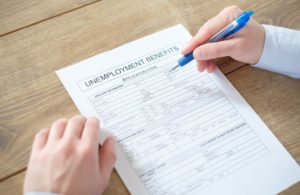By: Bruce Sattin
The Coronavirus Aid, Relief and Economic Security Act (“CARES Act”) that Congress has been debating for weeks has finally become law. One major portion of the law is the Relief for Workers Affected by Coronavirus Act, which has extended unemployment benefits to many who have lost their jobs, had their hours reduced, or are unable to work due to the COVID-19 novel coronavirus (which I will abbreviate as C-19 in this article). The bill also provides an additional $600.00 per week in benefits over and above whatever the state unemployment benefits allow. Here are some of the details:
Who Can Collect?
Anyone who has lost his or her job or had a substantial reduction in hours and would have been entitled to unemployment benefits under state law is still entitled to those benefits. This is no change in current law. However, self-employed people, gig workers (like Uber and Lyft drivers, messengers, house cleaners, nannies, dog walkers, personal trainers, etc.) and those having insufficient work history who were previously not allowed to collect unemployment benefits now can. Workers who have been prevented from working due to C-19, even though not technically laid off or fired, but not being paid, are now eligible. Unemployed workers whose unemployment benefits ran out any time after July 31, 2019 are now entitled to an extension of their benefits to a total of 39 weeks. Since benefits in NJ and PA have been limited to 26 weeks, those still unemployed will get an additional 13 weeks of benefits. Anyone currently receiving unemployment benefits will continue to receive them for a maximum of 39 weeks.
How Much Can You Collect?
Anyone qualifying for benefits under the new law will receive the same benefits they would have been entitled to under state unemployment law if they were eligible for state benefits. There are special rules to calculate how much one can get in state benefits for the self-employed and others who would not ordinarily qualify for unemployment benefits under state law. In addition, everyone qualifying under the new law will get an additional $600.00 per week over and above the state-mandated benefits. Anyone currently receiving unemployment benefits will get the extra $600.00 per week as well. Any waiting periods under state laws are not applicable to these benefits. The benefits start as quickly as the state can process them. Benefits are retroactive to anyone losing his or her job on or after January 27, 2020 and will continue through December 31, 2020.
Are There Strings Attached?
Workers have to certify that they are available and able to work, or that they are unable to work for any of the following reasons:
- They have been diagnosed with C-19 or have symptoms
- Someone in their household has been diagnosed with C-19
- They are caring for someone with C-19
- They are caring for a child who is at home because his or her school or other facility has been closed, and the school or other facility is necessary to allow the worker to go to work
- They are unable to get to work because of a quarantine
- They were unable to start a job because of the public health emergency
- They weren’t previously employed, but are now the head of a household because of the death of the former head of household due to C-19
- They had to quit their job because of C-19
- Their place of employment closed because of C-19
- They qualify under other criteria yet to be formulated by the U.S. Secretary of Labor
Workers who are able to work remotely and still be paid or who are receiving paid sick leave or any other form of paid leave are not eligible for these benefits. State laws requiring those on unemployment to actively seek work still apply, unless a worker is excused for one of the reasons listed above.
What Do You Do?
The law is new, and the procedures to obtain benefits are still being developed. Congress intended for workers suffering job or income loss due to C-19 to file for unemployment benefits through their state unemployment systems, the Department of Labor and Workforce Development in NJ and Department of Labor and Industry in PA. Anticipate that it will take some time for the state agencies to sort out all the new avenues of eligibility and figure out the benefits for those previously ineligible.
Update: On April 14, the New Jersey Department of Labor and Workforce Development issued guidelines for New Jersey residents applying for benefits now available under the CARES Act. Click here to view the guidelines.
The Pennsylvania Department of Labor and Industry has also added helpful information on benefits available to Pennsylvania residents to its website. Click here to view this information.
How Does This Law Affect Employers?
The Relief for Workers Affected by Coronavirus Act does not directly affect employers, except that certain employees or workers who may not have traditionally been considered employees (like real estate agents) may now be entitled to unemployment benefits. Ordinarily, that would affect an employer’s unemployment insurance rating and, hence, the premiums that it would pay. The Act does not provide employers any relief, but Pennsylvania has addressed this issue by excluding from unemployment insurance ratings any employees terminated, furloughed or laid off due to C-19. New Jersey has not yet done so.
Bruce Sattin is a business attorney and partner in the Lawrenceville, NJ law firm of Szaferman, Lakind. He can be reached at 609-275-0400 or via email at bsattin@szaferman.com.
For additional COVID-19 related resources and articles visit our COVID-19 Resource Center.
The foregoing is intended for general information purposes and is no substitute for specific legal advice.






